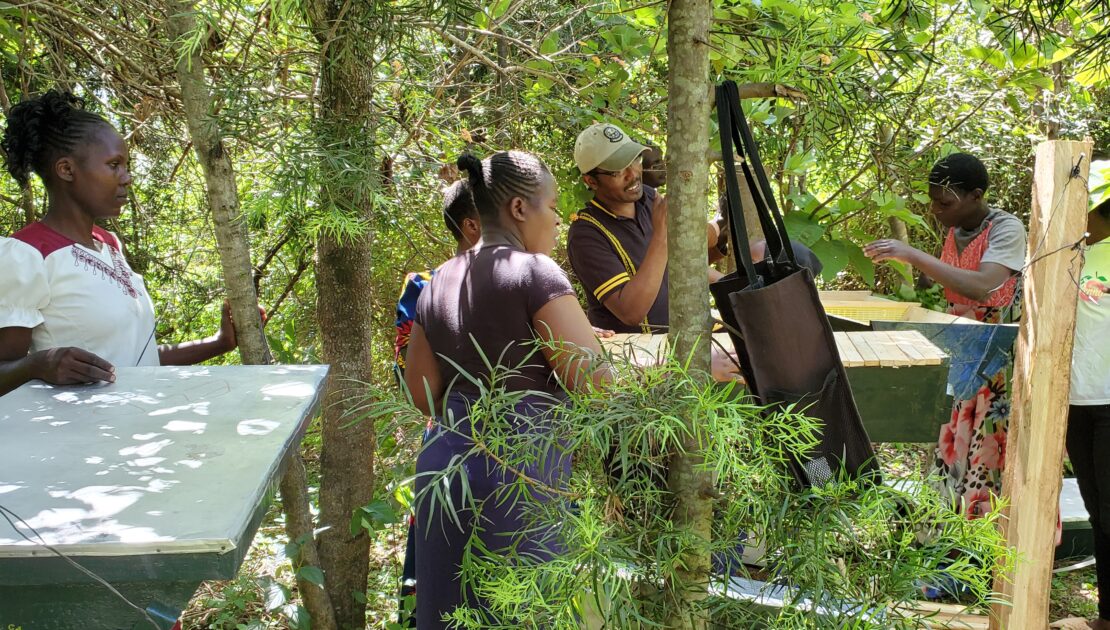Beekeeping is an agricultural branch in which beekeepers take care of honey bee colonies in order to collect honey and other hive products such as bee wax, propolis, pollen, royal jelly among other products. In Kenya, beekeeping is practiced majorly in arid and semi-arid areas (ASALs). As a matter of facts, eighty percent of the honey in Kenya comes from the ASAL areas with the rest being from non ASAL areas and imports from the neighboring counties of Tanzania and Uganda. Only twenty percent of the country’s honey potential has been tapped. Generally, beekeeping is seen as a men’s role and domain. Men offer security, repairs the hives, harvests and markets the processed honey. Men carry out most of the work and women are assigned roles that go hand in hand with their gender roles. Most of the time, women interact with honey and other hive products during value addition process.
The Baraka Women Beekeeping project intends to change this narrative and demonstrate without doubt that women can also be successful beekeepers. The project is a project of Baraka Women Beekeeping group located in Eldoret town of Uasin Gichu County Kenya. Eldoret is the county’s largest population centre as well as its administrative and commercial centre. Uasin Gishu is located on a plateau and has a cool and temperate climate. Agriculture is the main stay economic activity in the county, with Eldoret town also hosting several food products industries, a vibrant textile industry and a small arms and ammunition manufacturing industry.


